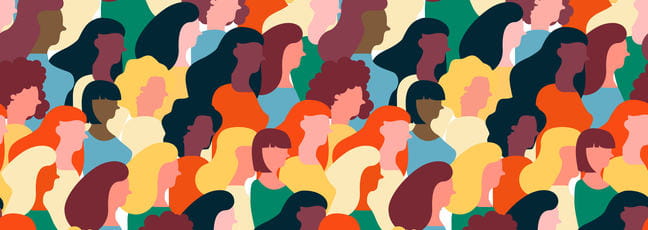Blog
Gender Representation in the Media
In January this year, we launched our completely free online course on ‘Gender Representation in the Media’. Run in collaboration with Gender Studies at the University of Strathclyde, the course was a resounding success with participants from over 100 countries!
We've now extended registration for the course until 28 September 2020! More information – and a link to sign up – is available below!
Course description:
From the coverage of Beyoncé performing in front of the word ‘feminist’ in neon lights at the MTV awards to the explosion in visibility of sexual harassment through #MeToo, feminist issues have never seemed so popular in the media. But research still consistently highlights women’s under-representation in mainstream media, from news to sports to feature films. Even when women are represented in print, on screen and online, it is certainly not all women. While digital forms can open up media production to some historically marginalised groups, equal representation still seems a long way off.
This course asks why the media is so important to gender equality globally, providing the tools to engage critically with the media that surrounds us. We’ll explore varied examples and examine the representation of women in everything from politics reporting to sports reporting, at violence as well as sexualisation and body image and also at feminist media.
We draw on the expertise and experience of a wide range of contributors including researchers, feminist activists and organisations, journalists, writers, broadcasters and more. These diverse perspectives, together with your own, will help you to learn about the complexity and importance of gender and the media where you are.
What topics will you cover?
Studying gender and the media can be complex. First you’ll develop a critical toolkit for thinking about and analysing the media, including:
- Key concepts and definitions
- Media monitoring in fact and fiction
Once you’ve developed your critical toolkit, we’ll then put it to work. You’ll explore the representation of women in five crucial areas:
- Politics
- Violence
- Sexualisation and body image
- Sport
- Feminist media and digital media
These different topics will allow you to explore the relationship between the media and gender, especially in relation to other structural inequalities including race, age, sexuality and disability.
Representations of women in the media can differ across different geographical contexts. Throughout the course, we’ll ask you to contribute examples of the media where you are in relation to these topics.
Who is the course for?
This course is designed for anyone who wants to be able to engage with media more critically or know more about gender inequality, media representations of women, media studies, feminist activism and feminist analysis.
Still want to know more?
Alongside the first run of the course, Gender Equal Media Scotland published a range of blog posts to give a little more detail about the weekly topics:
- Week 3 – Politics: Dr Michael Higgins, ‘Political Masculinities in the Brexit Debate’
- Week 4 – Violence: Prof Karen Boyle, ‘Of Monsters and Bombshells’
- Week 5 – Sexualisation and Body Image: Dr Petya Eckler, ‘Body Image and Social Media’
- Week 7 – Feminist Media and Digital Media: Dr Rachael Alexander, ‘Harpies and Quines and feminist magazines in Scotland’
We hope you can join us for the current run of the course! You can register for free here.
Comments: 0 (Add)
Get in touch
Explore how you can contribute to our vision of a more gender-equal media and culture in Scotland by reaching out today.
Sign up to our mailing list
Sign up to receive updates on EMCC events, opportunities, and our latest reports, straight to your inbox:
